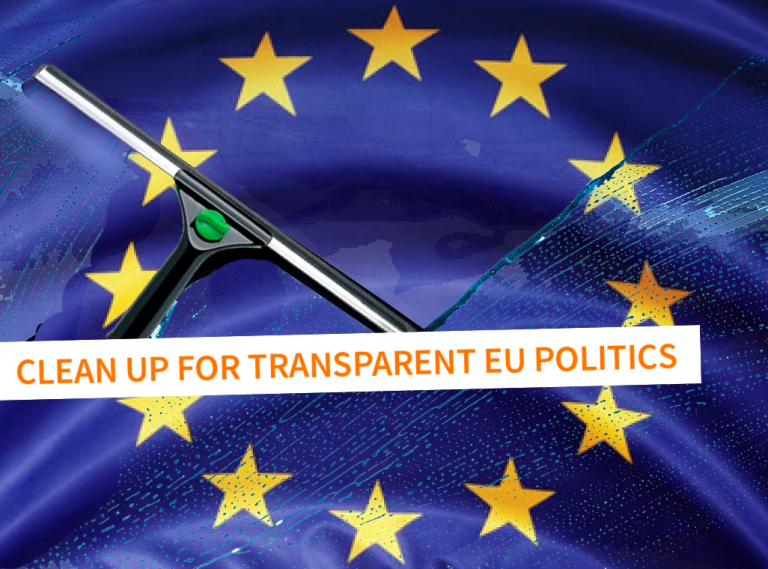On 31st January, the European Parliament will vote for the first time on binding rules for the lobbying transparency of MEPs, as part of a reform to amend the European Parliament’s rules of procedure. Last Wednesday, the Christian-Democrat EPP Group decided to vote by secret ballot on this change to the Rules of Procedure. Politico reports that the decision in the EPP group meeting was taken by a narrow 41 yes to 34 no with one abstention. An MEP of Viktor Orbans Fidesz had tabled the motion. According to Rule 180a of the current Rules of Procedure, a vote must take place by secret ballot if MEPs or political groups representing at least 20 percent of MEPs so request. The EPP could therefore enforce a secret ballot against everyone else.
On this reform of the rules of procedure, Sven Giegold, Parliament’s rapporteur for transparency, accountability and integrity in the EU institutions, comments:
“It’s a bitter irony to make transparency subject of a secret ballot. Transparency of lobbying in the European Parliament must not be made a secret matter. Contrary to Parliament’s custom, the Christian Democrats want a secret ballot on a matter of policy. The Christian Democrats must not give the impression that MEPs do not dare to publicly stand up for their convictions. The vote will decide whether citizens will in future know which lobbyists have met with their MEPs. MEPs should vote by roll call on their views on binding lobby transparency. A secret ballot on transparency would be a farce putting into doubt the reputation of the European Parliament. So far, the Parliament has rightly been seen as the leading EU institution on transparency issues. It would be tragic if Christian Democrats were inflicting serious damage to the credibility of the entire European Parliament. We are taking the issue to the European Parliament bodies in order to press for a new vote in the EPP Group and for abandoning the secret ballot. It is extremely unusual for a large group to prevent an inconvenient roll-call vote by means of this rule of procedure. It strengthens European democracy if large political groups exercise democratic restraint and do not use their size to limit democratic rights. Abusing the opportunities of large groups to evade accountability finally benefits only the Eurosceptics.”
BACKGROUND: rules of procedure on secret ballot
TITLE VII : SESSIONS
CHAPTER 5 : QUORUM, AMENDMENTS AND VOTING
Rule 180a : Voting by secret ballot(1)
1. In the case of appointments, voting shall be by secret ballot without prejudice to Rules 15(1) and 204(2), first subparagraph.
Only ballot papers bearing the names of candidates who have been nominated shall be taken into account in calculating the number of votes cast.
2. Voting shall also be by secret ballot if this is requested by Members or a political group or groups reaching at least the high threshold. Such requests must be made before voting begins.
3. A request for a secret ballot shall take priority over a request for a vote by roll call.
4. Between two and eight Members chosen by lot shall count the votes cast in a secret ballot, unless an electronic vote is taken.
In the case of votes under paragraph 1, candidates shall not act as tellers.
The names of Members who have taken part in a secret ballot shall be recorded in the minutes of the sitting at which the ballot was held.
(1) Rule 180a applies mutatis mutandis to committees (see Rule 209).

